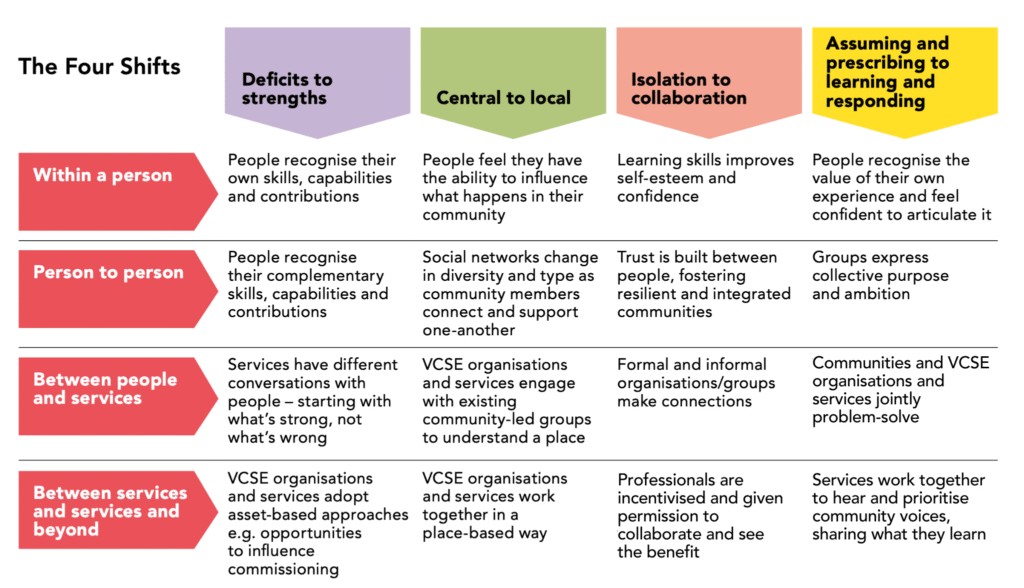
Evaluators are objective experts and final arbiters, working retrospectively with data that matters because it can be counted. Sound familiar? At Collaborate, we take a different, more developmental and equitable approach – rather than extracting the data we think is valuable and analysing it in ways that only reflect our own ideas of what constitutes success or impact, we move ‘from the work, through the work’.
We’ve supported many organisations and partnerships to navigate complexity and collectively surface insights that help enable equitable and systemic change.
For us, evaluation is a participative and generative journey we go on with partners, clients and research participants. We understand it to be an ongoing, active process as opposed to something delivered solely through outputs or as a final product. We subscribe to the maxim that “the process you use to get to the future is the future you get”. And this process is centred on relationships, recognising that learning and change are a collective social activity.
We don’t see evaluation as a passive or extractive exercise. Instead, we aim to play an enabling role, helping people reflect on progress as well as bringing constructive challenge. We believe learning and evaluation must be inclusive and attentive to power dynamics in terms of who gets to decide what counts as data and to be part of producing knowledge.
When we evaluate, we explore underlying system conditions like mindsets that are enabling or inhibiting outcomes. We hold that the historical, political and cultural contexts in which outcomes are produced are important to understanding how those outcomes have come about.
As a way of sharing and being accountable to a practice of evaluation that does more than measure conformity to dominant social norms, we are sharing reflections from recently completed work as evaluation and learning partner for Making it Happen (MiH), an asset-based community development programme in East Sussex.
We established what has become a guiding principle for Collaborate’s evaluation approach (‘from the work, through the work’) for the MiH evaluation to ensure that we organically embedded learning into the programme activities. We hoped that the evaluation could be not an activity in addition to the work, but part of the work itself.
It was for this project that we established what has become a guiding principle for Collaborate’s evaluation approach (‘from the work, through the work’) in an effort to ensure that we organically embedded learning into the programme activities. We hoped that the evaluation could be not an activity in addition to the work, but part of the work itself.
Contact Leigh Brown [email protected] to find out more by about our learning and evaluation work and how Collaborate can support you.
